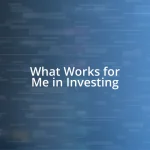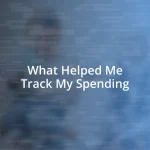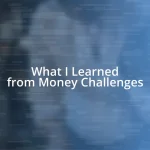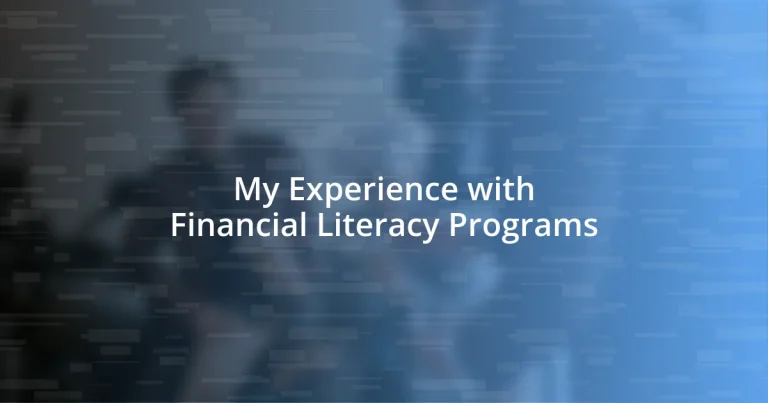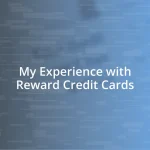Key takeaways:
- Financial literacy programs significantly enhance budgeting skills, promoting smarter spending decisions and increasing savings.
- Community support within these programs fosters shared learning experiences, reducing feelings of isolation in financial struggles.
- Continuous learning is essential; financial literacy is an evolving journey that builds over time through revisiting concepts and adapting strategies.
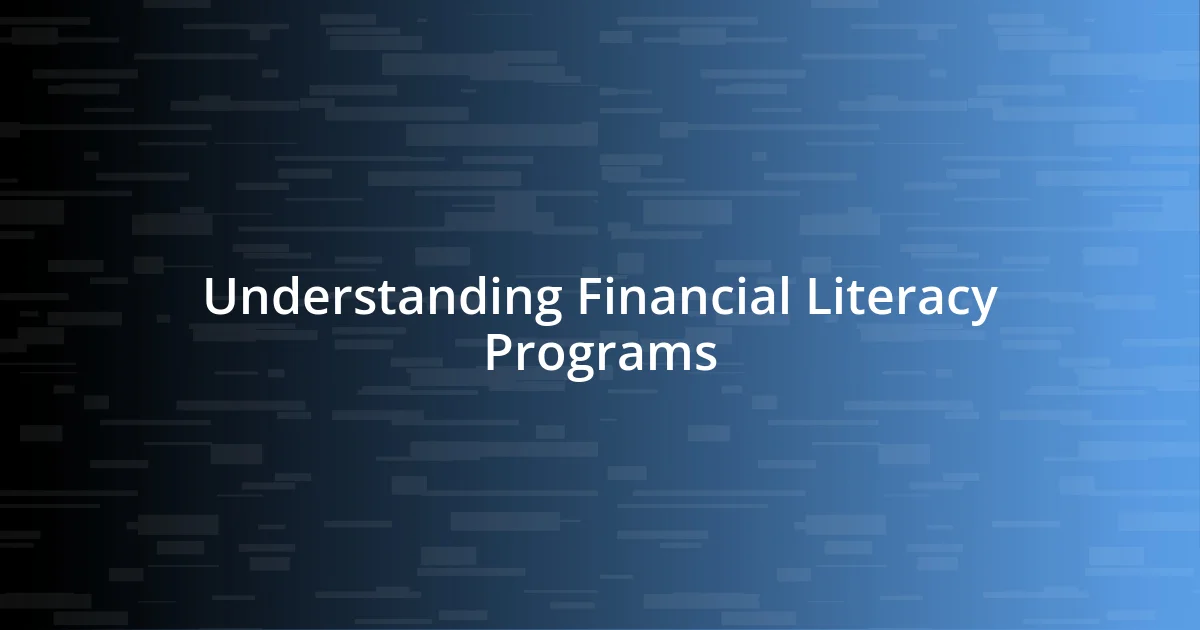
Understanding Financial Literacy Programs
Financial literacy programs are designed to provide individuals with essential knowledge about managing their money effectively. When I first encountered a financial literacy program, it felt like a light bulb illuminating what I had previously deemed an overwhelming subject. Isn’t it fascinating how education can transform fear into confidence?
These programs typically cover crucial topics like budgeting, saving, and investing, each serving as a building block towards financial security. I remember working through a budgeting exercise that made me realize how much I was spending on takeout. That moment was eye-opening! It made me wonder, how many people unknowingly let their finances slip through the cracks?
While some might see financial literacy programs as just another class, I believe they can be life-changing. By engaging with real-world scenarios, participants often find themselves relating the lessons to their own lives, sparking motivation to take action. Have you ever felt that jolt of inspiration when a concept suddenly clicks? That’s what truly makes these programs valuable.
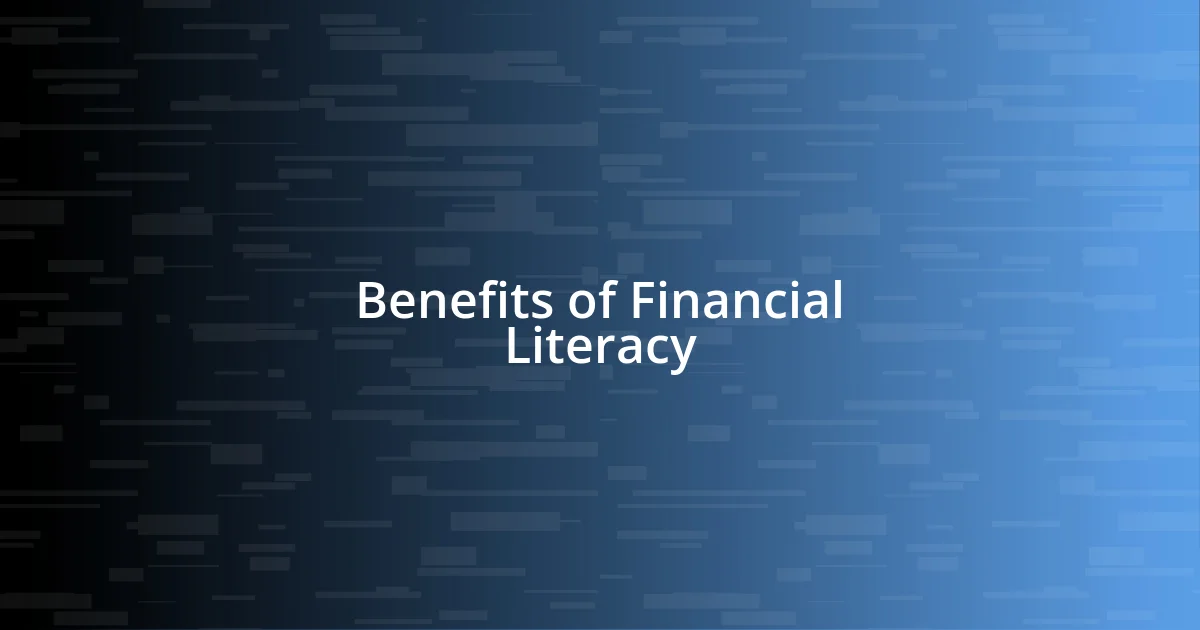
Benefits of Financial Literacy
Financial literacy offers numerous benefits that can dramatically reshape how individuals approach their personal finances. For instance, gaining a solid understanding of budgeting helped me identify and eliminate unnecessary expenses. When I started tracking my spending, I was surprised to find how much I spent on dining out – it was like a financial epiphany! This knowledge empowered me to make smarter decisions, leading to increased savings over time.
Additionally, financial literacy promotes a sense of confidence that permeates various aspects of life. After participating in a workshop focused on investment basics, I felt a newfound eagerness to explore different investment avenues. It’s amazing how understanding concepts like compound interest can change your perspective. Have you ever wondered how much investing early could impact your future? Knowing that my money could work for me was exhilarating and transformed my approach to retirement planning.
Lastly, financial literacy is crucial in fostering long-term stability. By mastering topics such as debt management, I learned strategies to pay off my student loans effectively. This journey taught me the significance of having an emergency fund, which now gives me peace of mind during unpredictable times. It’s incredible how these essential skills can create a safety net, ensuring that life’s surprises don’t derail your financial well-being.
| Benefit | Description |
|---|---|
| Enhanced Budgeting Skills | Empowers individuals to track spending and save effectively. |
| Increased Confidence | Boosts willingness to explore investments and financial planning. |
| Long-term Stability | Fosters debt management skills, promoting a strong financial foundation. |
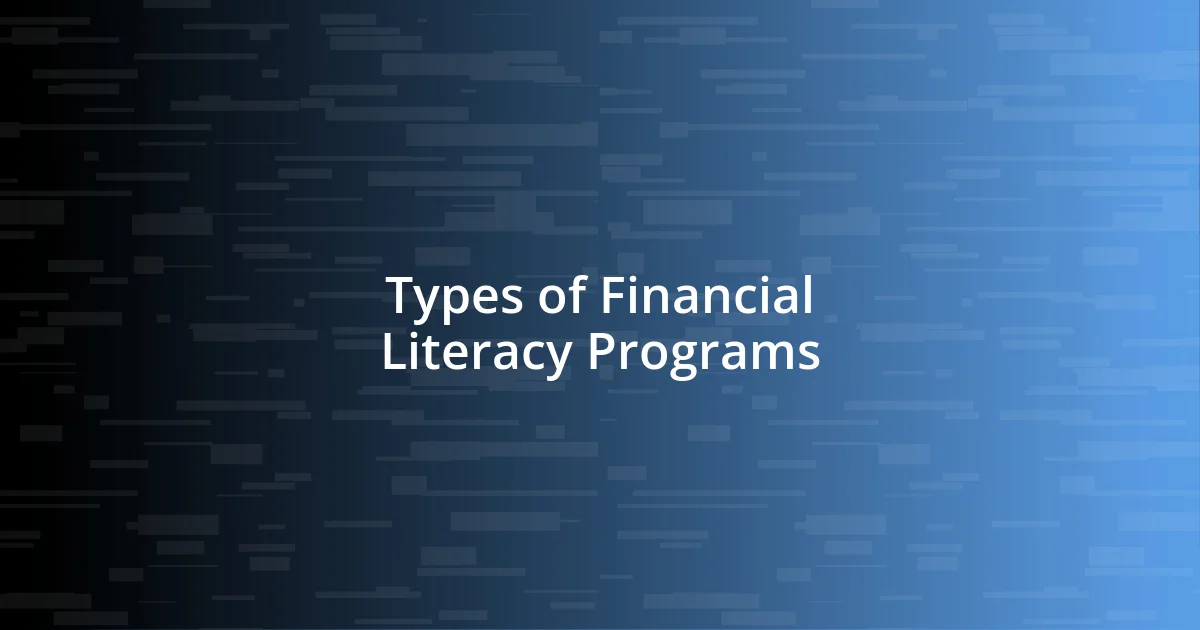
Types of Financial Literacy Programs
Financial literacy programs can vary significantly in their structure and focus, catering to diverse audiences. From my experience, some are tailored for specific age groups, like high school students preparing for real-world financial decisions, while others might target adults navigating complex financial landscapes. Each type has its unique approach, making it easier for participants to grasp concepts at their own pace.
Here are some common types of financial literacy programs:
-
Workshops and Seminars: Typically focused on specific topics like budgeting or investing, these sessions provide hands-on learning experiences. I recall attending a budgeting workshop where we created personal budgets using real data, making the information tangible and relevant.
-
Online Courses: These self-paced programs are great for those who prefer learning at home. I took one on debt management, and the flexibility allowed me to absorb the material thoroughly without feeling rushed.
-
Community Outreach Programs: Often hosted by local organizations, these programs engage with communities to raise awareness and improve financial knowledge. I once volunteered at a community event where participants shared their financial challenges; it was inspiring to witness the sense of camaraderie as everyone learned together.
-
School-Based Programs: Many schools incorporate financial literacy into their curricula, preparing students for real-life economic challenges. When I did a guest lecture for high school seniors, it was rewarding to see their curiosity about managing money effectively.
The variety in financial literacy programs means there’s something for everyone, regardless of their current financial understanding. Recognizing this can motivate individuals to seek out the right program for their needs.
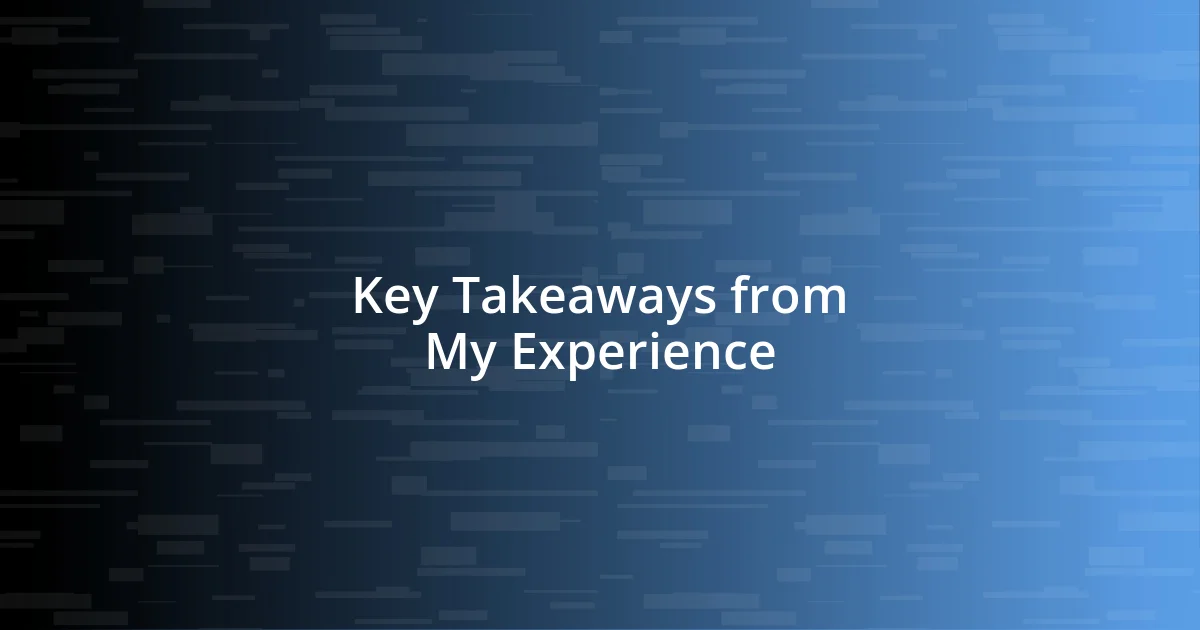
Key Takeaways from My Experience
One of the most significant takeaways from my journey through financial literacy programs is the importance of creating a personalized approach to budgeting. I remember sitting down with my financial mentor and mapping out my expenses for the first time. It was eye-opening to see where my money was going – it made me reflect on my priorities and realize how small changes could lead to greater savings.
Another key insight I gained is the power of community support. During a group seminar, I shared my struggles with debt management and was met with others who had similar experiences. It was comforting to know I wasn’t alone. This shared learning experience not only provided valuable insights but also fostered friendships rooted in a common goal of financial improvement.
Finally, I discovered that financial literacy is not a one-time event, but an ongoing process of learning. After completing an online course about investing, I felt inspired to dive deeper into personal finance. I often revisit the materials, tweaking my investment strategies as my knowledge expands. Isn’t it fascinating how financial education can evolve with you, providing layers of understanding that build over time?
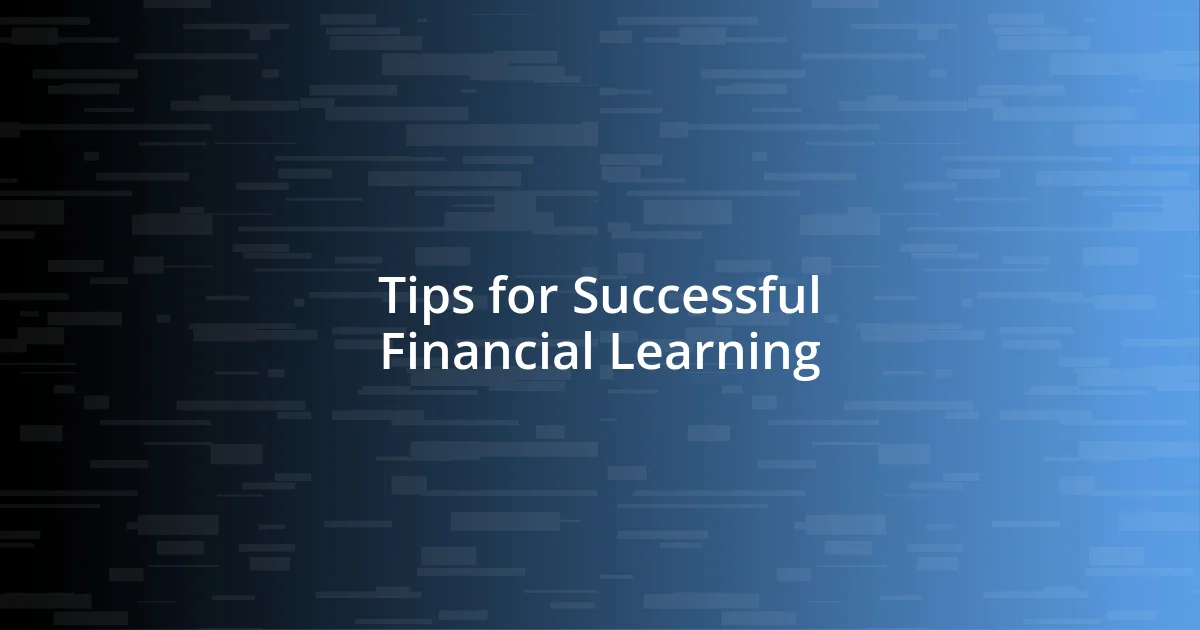
Tips for Successful Financial Learning
Effective financial learning hinges on engagement and practice. I’ve found that immersing myself in real-world scenarios—like setting up my budget for the month—has been incredibly beneficial. Each time I review my spending, I feel a mix of anxiety and empowerment. That tension motivates me to make better choices. Have you felt a similar drive when grappling with your finances?
Another key strategy is leveraging a variety of resources. In my experience, I often alternate between reading books, listening to podcasts, and attending workshops. Each resource offers a unique perspective, enriching my overall understanding. I distinctly remember a podcast episode that broke down complex investment concepts into simple terms. It was refreshing and made me eager to explore further. How often do you take the time to diversify your learning?
Finally, I believe in setting specific financial goals. When I decided to save for a vacation, it transformed my approach to my finances. Each small step, like cutting out that extra coffee, didn’t just contribute to my savings; it created a sense of accomplishment. Watching my savings grow was exhilarating! Do you have a financial target that excites you? Celebrating those milestones can really boost motivation.



